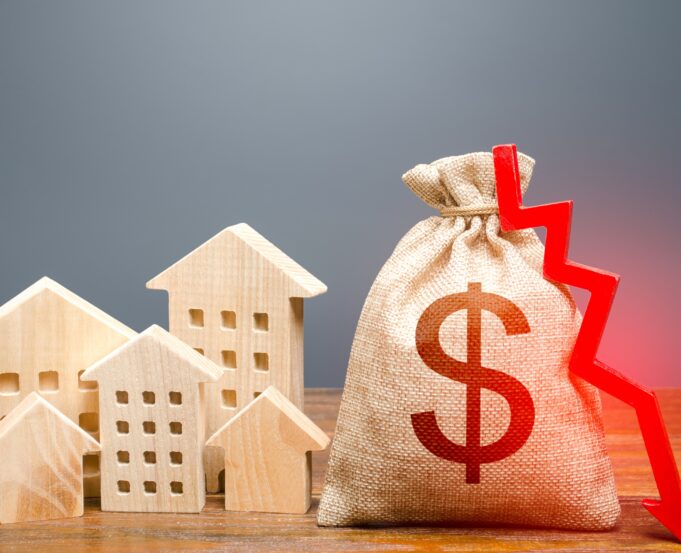Like many other organizations, homeowners associations can also encounter a bad debt. But, what is HOA bad debt anyway? And how can associations prepare for this?
WHAT IS HOA BAD DEBT?
Debt is a monetary amount owed by a debtor to a creditor. A debt is considered bad when it is unlikely that the debtor will pay and settle the amount owed. As such, a bad debt also goes by the term uncollectible debt or uncollectible amount.
Homeowners associations can experience bad debt, too – it is not reserved for business organizations. Within the context of an HOA, a bad debt normally refers to a delinquent amount that a homeowner is unlikely to pay the association.
THE EFFECTS OF HOA BAD DEBT
how to budget for bad hoa debtHomeowners associations are governing bodies in charge of community maintenance and management. But, these things don’t usually come free. Common area maintenance naturally requires the help of certain vendors as well as the use of tools and supplies. As such, associations will typically incur expenses in the process.
To pay for these expenses, the association turns to the homeowners. Homeowners pay monthly dues to the association, and this is where the HOA’s operating budget stems from. Membership in an HOA is often mandatory.
In other words, when someone buys a home in an HOA community, they automatically become a member of the association and agree to fulfill various obligations, one of which is to pay regular dues.
But, when homeowners stop paying their dues, the association can run into a world of problems. With a high rate of HOA bad debt, the association won’t be able to properly budget for or pay the expenses associated with maintaining the community. To recover the loss, a majority of associations will be forced to increase regular dues or levy special assessments – neither of which is fair to paying members.
HOW TO BUDGET FOR BAD HOA DEBT
Not all homeowners associations will need to budget for a bad debt line item. A good rule of thumb is to examine your situation from a bird’s eye view. If you normally experience only two or three delinquencies out of 100 homeowners, then you probably don’t need to budget for bad debt. Beyond that, you may need to take a look at your budget.
Here is how an association can budget for an HOA bad debt expense.
1\. MONITOR DELINQUENCIES
The first thing you need to do is stay on top of your association’s delinquencies. It’s a good idea to do this with the help of a spreadsheet so you don’t lose track. Make sure to monitor the delinquency per account/unit and input any new amounts owed. It is also best to keep track of how long each amount has been owed.
Separate the delinquent amounts according to how long they have been overdue. This way, you can have a better idea of the aging of each account. It is customary to separate them in increments of 30 days. Have a column for amounts that have been overdue for 1-30 days, 31-60 days, 61-90 days, and so on. Debt that keeps moving from one column to the next will likely become bad debt.
Simply setting up a spreadsheet for tracking won’t do, though. You have to make sure to update this report regularly. With time, you will notice trends forming. Perhaps you will see that a particular account or owner becomes delinquent more often than others. Maybe more owners pay their dues late during certain months of the year. Pinpointing such trends will allow you to adjust and think of a solution.
2\. CONSIDER ECONOMIC FACTORS
Ideally, an association would only have 1% to 2% uncollectible accounts. However, there are economic factors beyond your control that can affect your HOA bad debt rate. An economic downturn or a recession, for instance, can significantly impede owners’ ability to pay their dues. As such, during such times, you might set more realistic projections for your bad debt percentage.
3\. SUPPLEMENT COLLECTION COSTS
If a lot of homeowners stop paying their dues, you will likely need to turn to certain collection efforts. These include hiring a collection agency, referring the account to your lawyer, imposing liens, and even initiating foreclosure. While all of these can help reduce your delinquency rate, they also come at a cost. Therefore, you should anticipate increasing collection costs if you have a lot of bad debt.
4\. SEEK PROFESSIONAL ADVICE
Professionals such as a Certified Public Accountant (CPA) and an attorney can further help your association deal with bad debt. An accountant can take a look at the HOA’s finances and guide you through budgeting for bad debt. They can determine how much you will need to write off and what your shortfall is going to be.
An attorney, on the other hand, can give you advice on what actions you can take to reduce your bad debt. They can also work hand-in-hand with your CPA to identify which accounts are still collectible.
5\. CUSHION THE BUDGET
The last thing you need to do is to add a cushion to your budget. It’s generally a good idea to pad your bad debt by about 10 percent, particularly if you expect more collection problems in the future. This is also so you can give your association some room in terms of your budget.
WHEN TO STOP PURSUING BAD HOA DEBT COLLECTION
While an accountant can help you determine when to write off bad debt, there is a general rule you can follow. Most associations only write off a balance as bad debt if the debtor is no longer an owner. That means that if the debtor is still a homeowner and a member of the community, that debt is still collectible. You can still pursue collection efforts and settle the balance.
Another instance when you would be forced to write off bad debt is when the owner files for bankruptcy protection. If the Bankruptcy Court discharges the debt, the association can’t hold the owner personally responsible for the debt anymore. As such, the association generally no longer has the ability to collect that debt.
NOT LIMITED TO HOA DUES
hoa bad debt expenseHomeowners associations primarily rely on dues and assessments to fund their expenses. As such, bad debt usually comes in the form of unpaid dues. But, there are other things that can turn into bad debt, too.
A good example of this would be if the association has a cost-sharing agreement with another entity. If that entity fails to pay its end of the agreement, it can turn into bad debt. Another example is rental income where the association rents out its facilities to owners or non-owners. Unpaid rental income can turn into bad debt as well.
DEALING WITH BAD DEBT
HOA bad debt has a direct and negative impact on the finances of a homeowners association. Too much bad debt can mean that there is something wrong with the way the association handles unpaid dues. Beyond that, paying owners are placed in an unfair position, as they are forced to cover for non-paying owners.
One of the ways you can boost your collection efforts is to hire an HOA management company. Start looking for the best one in your area using our online directory!
Written by HOA Management | Shared from HOA Management











